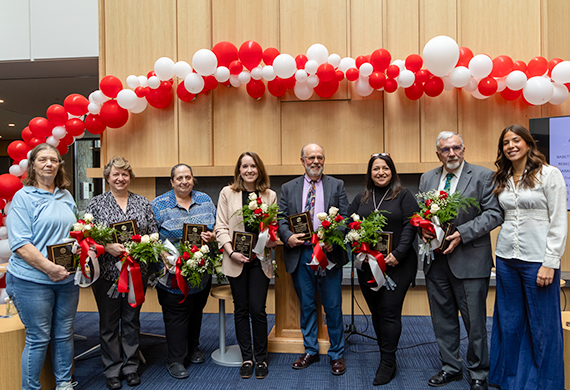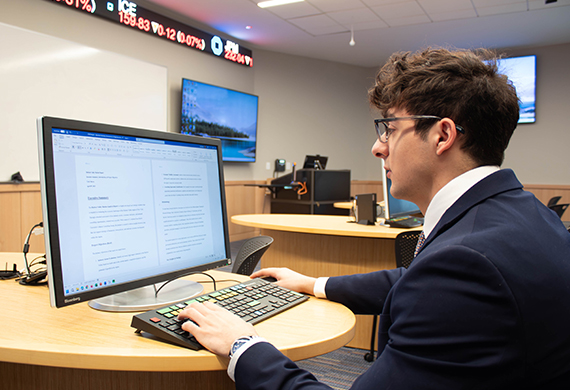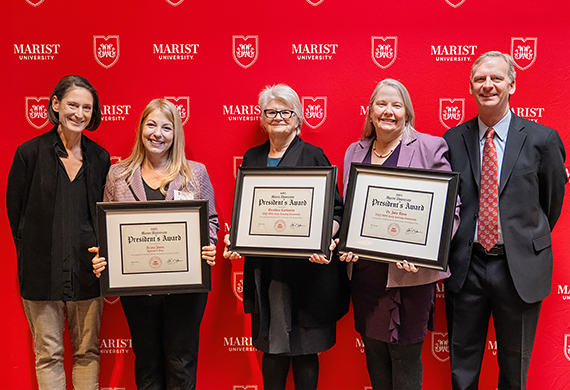A $75 Million Gift Establishes the Raymond A. Rich Institute for Leadership Development
$75 million bequest to Marist College from one of the 20th century’s leading businessmen and industrialists will establish an institute to educate and train individuals in the art of leadership in business, government, and the nonprofit sector.
Raymond A. Rich bequeathed to Marist a 60-acre estate on the Hudson River that contains one of the most historically and architecturally significant homes in the Hudson River Valley. The Payne Mansion, located in the Ulster County town of Esopus, is a 42,000-square-foot Beaux Arts-style palazzo designed by the renowned Manhattan firm Carrère and Hastings, architects of the New York Public Library and the Frick Museum.
Also known over the years as Omega and Wiltwick, the mansion was built in 1905 by Col. Oliver Hazard Payne, a brigadier general in the Civil War who founded an oil refinery later bought by John D. Rockefeller’s Standard Oil Co. The replacement value of the residence has been conservatively estimated at approximately $65 million by the firm of Robert A. M. Stern, dean of the Yale School of Architecture, whose company designed the Hancock Center now under construction at Marist.
In addition, Rich designated approximately $10 million in cash to support the Raymond A. Rich Institute for Leadership Development and its programs. The gift is the largest in Marist’s history. The institute will specialize in the development of communication, interpersonal, and social skills necessary for leading complex organizations in a global setting.
Rich began thinking about a leadership-training legacy in his estate a few years ago, according to Claire Carlson, Rich’s longtime companion and the executor of his estate. Following his purchase of the Payne Mansion from the Marist Brothers in 1986, he and Carlson were introduced to Marist’s president, Dennis J. Murray. “It didn’t take Ray long to realize that Dennis and Marist College were the ideal conduit for his personal quest to ignite his leadership concept,” says Carlson. “Ray believed ethics, values, humility, and thoughtfulness must be inherent in leadership training as primary elements. Marist College has ethics and philosophy as required courses in its curriculum. Not many colleges do.”
Rich was an avid reader of business news, Carlson says, which “in recent years has highlighted how lacking our leaders are in these endeavors, be they government, corporate, or nonprofit. He realized how dedicated Dennis Murray has been to making Marist College, over the past 30 years, a cornerstone in today’s world with its emphasis on morality, opportunities for first-generation students, and razor-edge information technology programs. Ray sensed that the Marist board is also strongly supportive of making the College a special educational experience. As a result, Ray decided, based on a business leader’s analysis, that his concept was a perfect fit for Marist College, and he looked no further.”
The institute will be in keeping with Marist’s ideals of excellence in education, dedication to service, and fostering a sense of community, says Robert R. Dyson, chair of the Marist Board of Trustees. “The board enthusiastically accepts Mr. Rich’s very generous gift with the board’s and College community’s gratitude to him for his gift and for the leadership he provided throughout his life.”
“Ray Rich took great pride not only in building organizations but also in the thousands of jobs and the economic prosperity created by those organizations,” says Murray. “He once told me, ‘The key to being a successful CEO is to hire great people, be humble in managing them, and always operate with integrity. It’s not only the right thing to do, but it’s also good business.’
“This extremely generous gift presents Marist with a variety of wonderful opportunities to enhance leadership development across the nation and around the world,” says Murray. “We’ll work with corporations, government agencies, and nonprofits to train individuals whom these organizations have identified as having high leadership potential. We hope to instill in future leaders the qualities that made Ray Rich one of the most successful businessmen and industrialists of his time.”
Raymond A. Rich’s bequest includes a 60-acre waterfront estate on the west side of the Hudson River, in the town of Esopus, N.Y.



